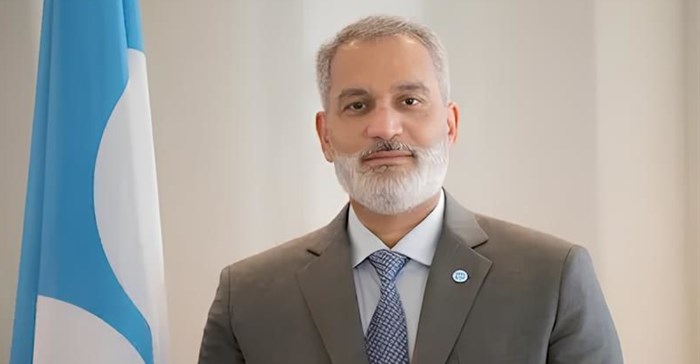Imagine waking up tomorrow to a world without oil. Petrol and diesel would be non-existent. Our cars, buses, lorries, and coaches, all dependent on the internal combustion engine, would be nothing more than hunks of useless metal. Air travel would grind to a halt, as jet fuel-powered planes remain uselessly grounded. Even freight and passenger trains, so many powered by diesel, would cease to move.

HE Haitham Al Ghais, Secretary General of OPEC
The disruption to our daily lives would be catastrophic. Workers couldn't reach their jobs, children couldn't get to school. Global shipping, our lifeblood for both goods and passengers, would face a devastating blow.
But it goes deeper. Emergency services are not immune to this crisis. The majority of ambulances, fire engines, police vehicles, and rescue helicopters depend on oil for their function. And even if one could find a way to signal for help, the fact remains that our phones and computers, with their oil-derived plastic components, would be just as useless.
Our built environment would also face a standstill. Diesel-powered construction machinery—excavators, bulldozers, dump trucks, cranes, the works—would be paralysed. New homes and essential maintenance would become impossible.
If oil disappeared tomorrow, petroleum-based products would vanish with it. This would impact the production of electric vehicles (EVs). Aside from the supply chains disruption, the structure of lithium-ion batteries would be affected. A lithium-ion battery has four parts: an anode, cathode, electrolyte, and a separator.
Separators are engineered microporous membranes, typically made of polyethylene or polypropylene petroleum-based products. The petroleum-derived synthetic rubber used on car and bicycle tyres would cease to exist.
No more food
If oil disappeared tomorrow, food production would be devastated. Many of the vehicles necessary in agriculture; tractors, mowers, combine harvesters, balers, sprayers, and seeders ̶ would stop working. Food packaging necessary for storage and preservation would not be available. Petroleum coke, a by-product in oil refining, is used as a feedstock in manufacturing synthetic fertilizers, which are important in increasing crop yields. Food shortages and the knock-on impacts would likely ensue.
If oil disappeared tomorrow, it would be catastrophic for health services everywhere. Staff would lack mobility, and essential supplies would be stranded. Beyond transportation, petroleum is an essential feedstock for pharmaceuticals, plastics and medical supplies.
Latex gloves, medical tubes, medical syringes, adhesives, some bandages, disinfectants, hand sanitizers, cleaning agents, prosthetics, artificial heart valves, resuscitation masks, stethoscopes, MRI scanners, insulin pens, infusion bags, medication packaging, face-masks, and Personal Protection Equipment are derived from petroleum-based materials.
The equipment used in medical research such as microscopes, test tubes and goggles usually contain petroleum-derived components
The chemical synthesis that creates aspirin begins with benzene, which is derived from petroleum. The benzene is converted to phenol, which in turn is converted to salicylic acid. This is then transformed into acetylsalicylic acid, which the world knows as aspirin.
It is difficult to conceive of a modern hospital without this range of essential petroleum-based products.
Renewable energy collapse
If oil disappeared tomorrow, the renewables industry would be impacted. The fibreglass, resin or plastic necessary for the construction of most wind turbines, would disappear. The ethylene used in the production of solar panels would vanish. Most of the mining vehicles - large trucks, rotary drill rigs and rock drills - necessary to extract the critical minerals upon which the production of solar photovoltaic plants, wind farms and EVs depend, would become stationary.
If oil disappeared tomorrow, homes would be transformed beyond recognition. There is the possibility roofs would collapse, for example, if bitumen was a key product. Other materials used in insulating homes would disappear.
If you relied on heating oil to keep warm, that would go. The linoleum flooring and tiling would be impacted. Painting the walls would be a challenge. Furniture, pillows, rugs, curtains, dishes, cups and non-stick pans all are likely to be made from petroleum-derived products too.
It would be a challenge to stay clean or keep homes clean, if oil disappeared tomorrow. Laundry detergent and dish detergents usually derive from petroleum-based products. Soap, toothpaste, hand-lotion, deodorant, shampoo, shaving cream, eyeglasses, contact lenses, combs, brushes; all normally contain petroleum-derived products.
It would be a struggle to get anywhere, as the asphalt that paves roads and footpaths would vanish.
Job losses
If oil disappeared tomorrow, millions of jobs would be lost. Tax revenues would be depleted. Industrial production would crimp. Economic growth would go into reverse. The plight of the fuel poor would be worsened.
This is not even the full list of everything that would be impacted, in such an unthinkable scenario.
Yet, despite these realities, there are calls saying, ‘Just stop oil,’ ‘Keep it in the ground,’ or ‘don’t invest in new oil and gas projects.’
Of course, everybody wants to see greenhouse gas emissions reduced. OPEC believes that technological solutions and efficiency improvements can play a vital role. The oil industry is already proactive in this regard.
We need to be cautious of endangering the present, in the name of saving the future. It is important we all fully understand the immense benefits that oil, and the petroleum products derived from it, continue to provide to people and nations across the world.

















































